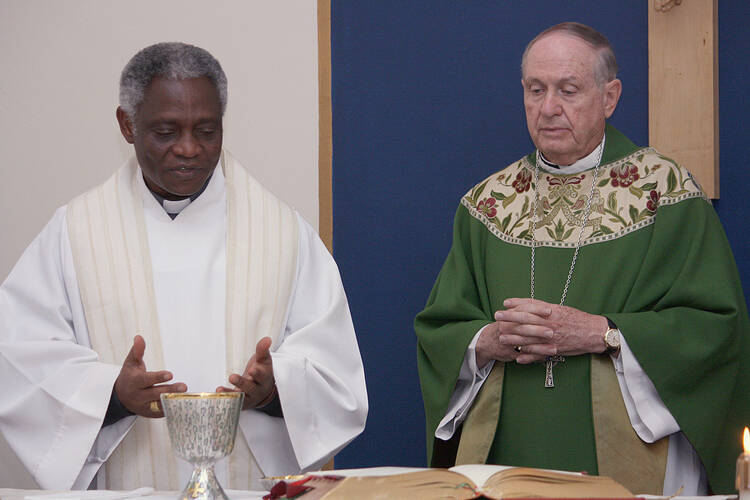Cardinal Peter Turkson of Ghana, president of the Pontifical Council for Justice and Peace, came to Des Moines, Iowa, to receive the World Food Prize on Oct. 16. The cardinal urged groups on both sides of the divide on bio-engineered and genetically modified food to engage in conversation and dialogue. Cardinal Turkson expressed support for biotechnology when it is married to ethics, compassion, morality and prudence. “In Catholic thought, ‘nature’ is neither sacred nor divine, neither to be feared nor to be revered and left untouched,” he said. “Rather, it is a gift offered by the Creator…entrusted to the intelligence and moral responsibility of men and women.” Agricultural practices that respect human dignity and the common good would include environmental monitoring, regulations, universal access and transparency to consumers, he said. “It is hazardous—and ultimately absurd, indeed sinful—to employ biotechnology without the guidance of deeply responsible ethics,” he said. He also warned of the consequences of denying the most impoverished segments of the population access to biotechnology.
Sowing Ethics
Show Comments (
)
Comments are automatically closed two weeks after an article's initial publication. See our comments policy for more.
The latest from america
Los Angeles Archbishop José H. Gomez was one of several community leaders who joined to open the Family Assistance Program, aiding those affected by recent ICE raids.
On Friday, Pope Leo XIV issued a statement on the theme "Migrants, missionaries of hope."
In Steven Spielberg’s “Close Encounters of the Third Kind,” an ordinary electrician has a transcendent encounter—with U.F.O.s, not God.
Many of my acquaintances have given up “reading about something that didn't happen.” But fiction has long-term and concrete value, both mentally and socially.








